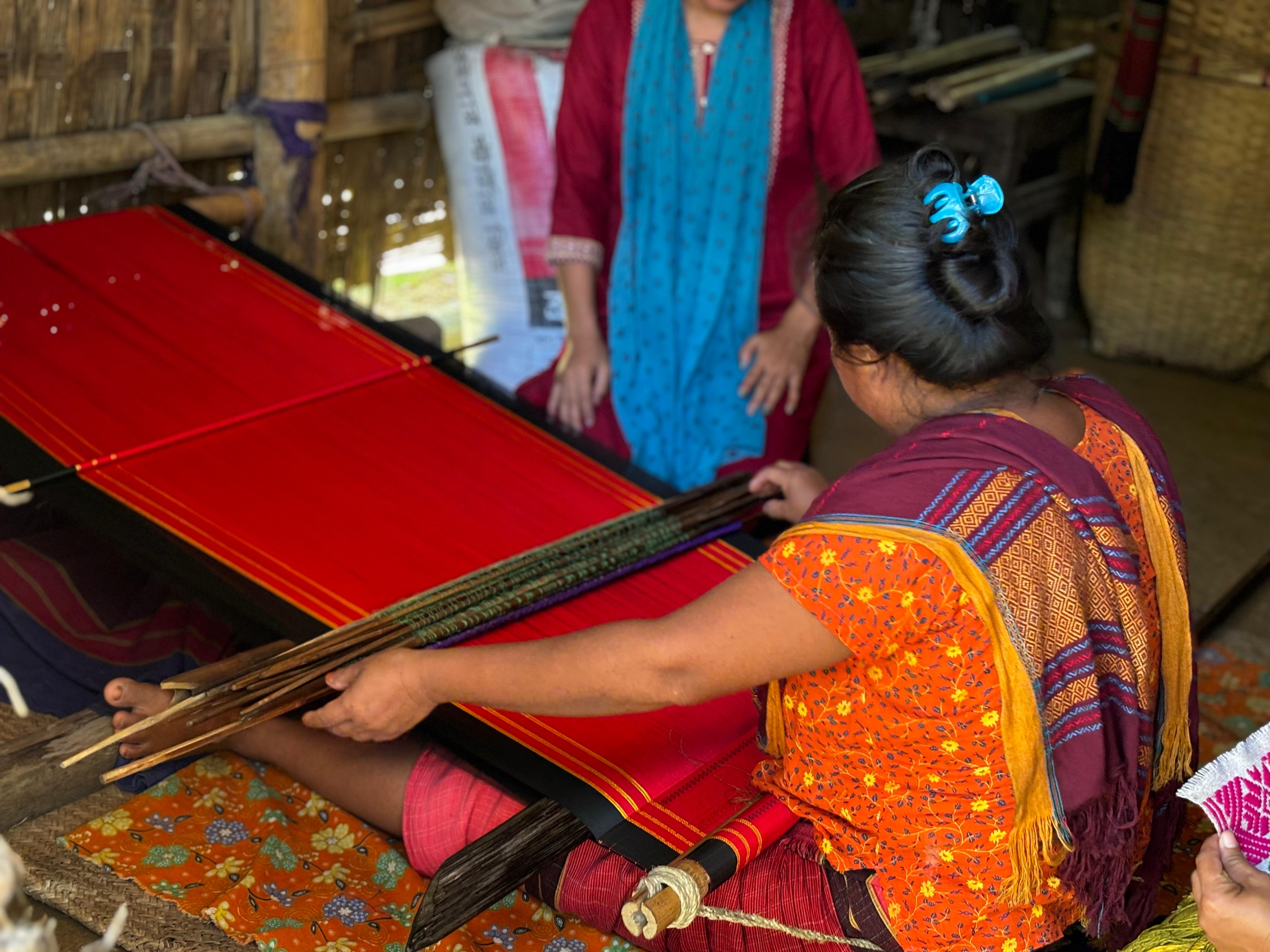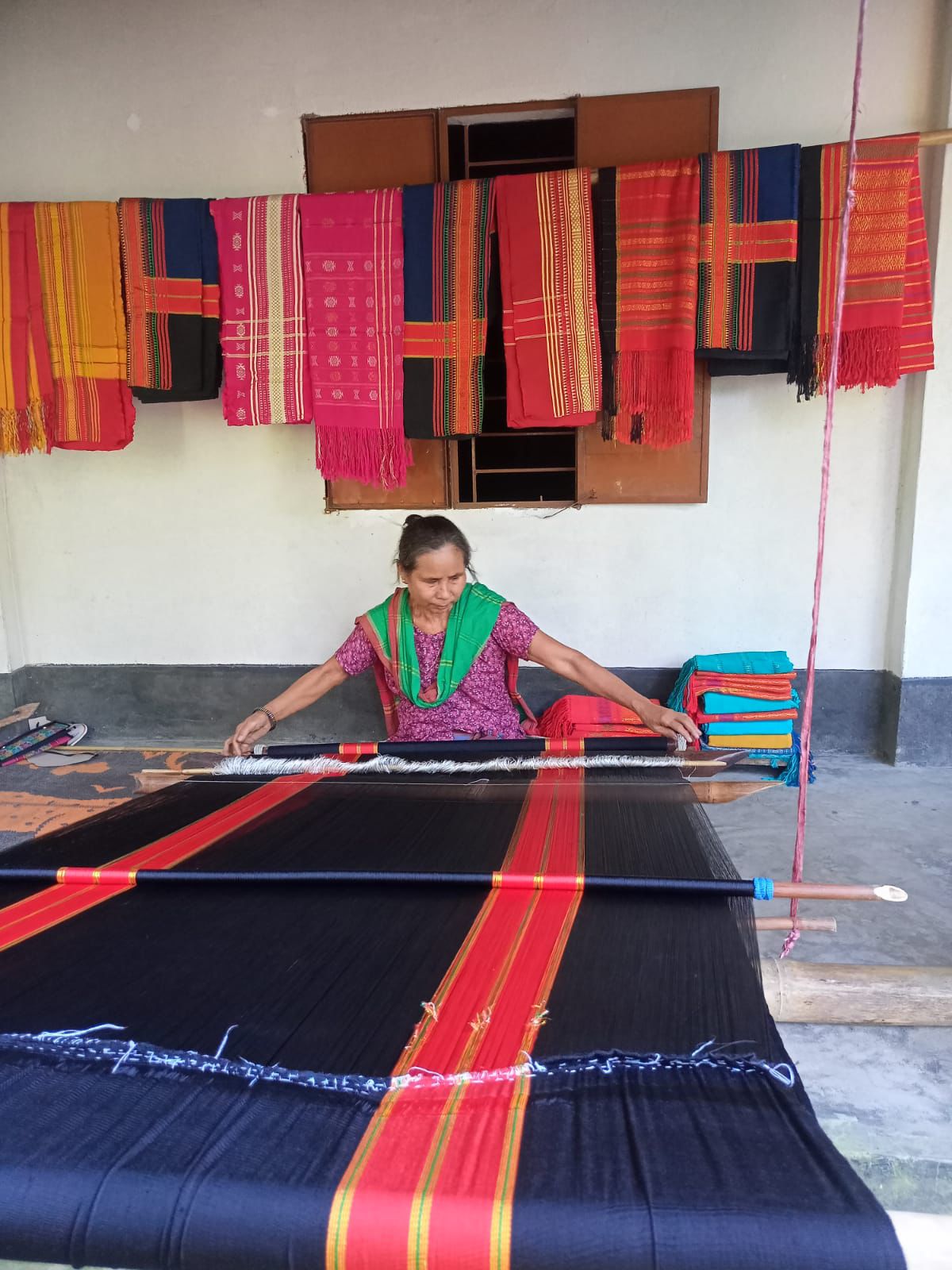
Empowering Indigenous Women to Thrive through Climate-Resilient Weaving Enterprises
In the remote hills of Sapchari Union in Rangamati, two villages, Bame Taimudu and Hajachora Noadam, are home to indigenous people who have upheld the art of waist-loom weaving for generations. While farming has been their primary livelihood, many artisans also weave , handcrafted fabrics. However, this tradition has often been a struggle, as most weavers work as sharecroppers, earning meager wages without the opportunity to profit from their work.
This began to change with the Climate Adaptive Livelihood Options (CALO) initiative by the United Nations Development Programme- UNDP’s Local Government Initiative on Climate Change (LoGIC) project, a multi-donor collaborative initiative of Bangladesh Government, UNCDF, Sweden and Denmark.
As climate change disrupted traditional farming with unpredictable monsoons and droughts, many indigenous women turned to weaving as a sustainable alternative, unaffected by weather. Through the Climate Resilient Fund (CRF) under the LoGIC initiative, they received financial support to purchase quality materials, enabling them to transform their passion for crafting traditional Pinon-Hadi garments, traditional dress for indigenous womem, into viable businesses.
